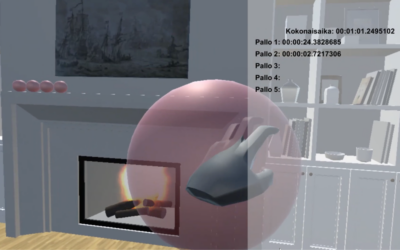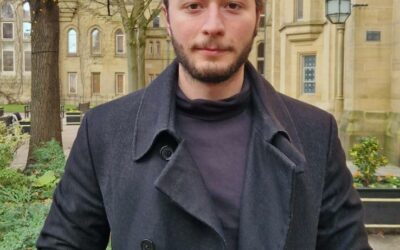Our first “A quick look on…” piece welcomes Tom Ffiske, the editor of Immersive Wire (a newsletter and website dedicated to all things VR, AR, and the metaverse).
A quick intro:
Tom focuses on immersive tech and metaverse analysis and is known to be a ‘VR and AR marketing expert’ and ‘metaverse expert’ (by The Drum). Tom has written about the industry since 2016, covering the latest trends and investments while keeping a pulse on the latest innovations. He has spoken in several events, published a bestselling book on the sector, and help connect professionals to help each other soar.
Contact details:
tom@immersivewire.com // https://www.immersivewire.com/
Currently, a huge body of research is conducted worldwide, with academic institutions to explore the potential of VR and AR for either physical or psychological rehabilitation. A few examples of such studies would involve the use of VR for aiding the recovery of patients post-stroke or for the treatment of anxiety disorders. Healthcare systems, such as the National Health Institute in the UK, are now offering treatments based on VR for a variety of conditions. To get access to VR and AR applications, the tech used may come from either academically-funded organisations or via co-operations with industrial partners.
So, we asked Tom to share his thoughts and views on where medical VR and AR stands in the industrial world. Are they attractive investments? Should academic institutions continue securing funding for medical VR and AR research and will the industry welcome such partnerships? Let’s see…
- With the VR and AR industry to be increasingly expanding, do you see a place for medical VR and AR applications? Is this a field the industry might be willing to invest on?
TF: Absolutely, it is one of the strongest areas. FundamentalVR is one company doing very well (in close collab with Meta) and I’ve seen plenty of studies on its worth as a market.
- Do you think, in the near future, there might be motivation for corporations (even big ones such as HTC, Facebook, etc) to develop VR and AR tech specifically designed for medical/rehabilitation purposes?
TF: That already exists. Smaller companies like Immerse and Make Real are doing some great work, and I think Bodyswaps have some medical ones which you should take a look at.
- Do you think the willingness to invest on VR/AR applications and tech might ultimately depend on the industrial culture of each continent?
TF: I think so. China is particularly fervent, and I have seen some signals in the FT that some investors are going in. But I want to see more evidence before I go further.
- Do you see any challenges that would prevent corporations to invest on such applications and tech, assuming that there are in place agreements with academic institutions to massively disseminate their VR/AR patents and protocols?
TF: I don’t see that is the main barrier, based on the execs I have spoken to.
- From a philosophical and ethical perspective, should we be aiming for academic-industrial co-operations to promote medical VR/AR use (and increase benefits and outreach to patients) or is this more of a dream rather than a realistic goal?
TF: I don’t see why not, but I honestly cannot be sure!
After this “quick look on…” medical VR and AR in industry, we thank Tom for his time and expertise and we hope to see more wide-range co-operations between academic and industrial institutions in the future that will promote standardised treatment protocols and patient outreach!




